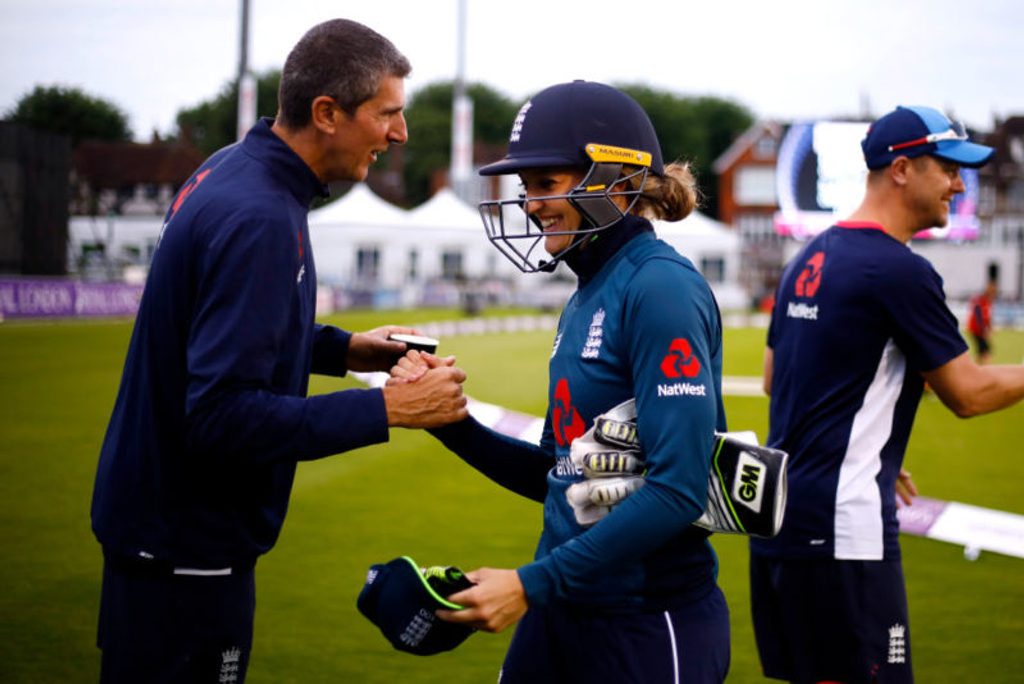
When 10 years ago, Marcus Trescothick described the “black wings of overwhelming depression”, he was an outlier in cricket when it came to speaking about mental health. But a visible change in recent times is how a normally reticent sport has opened up to the issue.
Around the World Mental Health Day that was marked earlier this week, more members of the fraternity came out to encourage those struggling to cope to speak out and reach for help.
“It is probably one of the worst sports, well I think, for mental health,” Suzie Bates, New Zealand Women’s former captain, said about cricket. As a double international, having represented her country in the Olympics in basketball as well, she might have some idea.
Please remember that everybody needs somebody. Open up and talk about how you feel with people you trust. Suffering with mental health is nothing to be ashamed of and believe me, it can and will get better 😘#WorldMentalHealthDay pic.twitter.com/SOCin9IGgM
— Kate Cross (@katecross16) October 10, 2018
The long stints away from home, the pressure to perform at the highest level, the tough competition for spots, and the challenges of being a part of a team sport are only some of the factors that present mental, physical and emotional challenges to a player.
Besides, as Bates pointed out, cricket is often a mental game: “Once you have made that level there is a lot of mental skill rather than physical skill.”
“You do learn to deal with it, but there are some tough times, especially when you or your team aren’t going well. It is a lot harder to be away then, than when everything is rosy and you are winning,” Bates, the top ranked batter in women’s T20Is, told stuff.nz in an interview.
It’s ok not to be ok. Please speak out for whatever reason, don’t suffer in silence #WorldMentalHealthDay pic.twitter.com/2Tew3GJ5lM
— Jason Roy (@JasonRoy20) October 10, 2018
As the women’s game has become more professional, its busier schedule, new leagues abroad and increased scrutiny in the press have meant new muddied waters for the female cricketers to navigate.
“I think previously in women’s cricket [mental health] wasn’t such a major issue. You have your work life, or your uni life, and then you went on tour for maybe three or four weeks then came back into that routine,” Bates, who made her debut back in 2006, said.
“Now there is your life with cricket and you are away. Also when you come back you are not necessarily coming back to work and study to get away from it, you are coming back to train again.”
 ‘It’s important we see mental health in a similar way to a player with a physical injury,’ Mark Robinson has said of Sarah Taylor
‘It’s important we see mental health in a similar way to a player with a physical injury,’ Mark Robinson has said of Sarah Taylor
In these situations, to have someone of the stature of Mark Robinson, the England coach, clearly state, “It’s important we see mental health in a similar way to a player with a physical injury,” it sends out a strong message.
“You wouldn’t risk a player if you felt that playing them with an injury would increase the chances of them being out for a long time or the issue even becoming career-threatening,” so why risk it with mental health, Robinson asked.
The coach was speaking in context of Sarah Taylor, the England wicketkeeper-batter, who will miss the 2018 Women’s World T20 as she continues to deal with her anxiety issues. Taylor has spoken out in vivid detail of her little wins and many stumbles – as have her teammate Kate Cross and England internationals such as Freddie Flintoff, Trescothick, Graeme Fowler.
Our mental health is as important as our physical health. Remember to speak up & ask for help, you are not alone 🤝 #WorldMentalHealthDay
— Mark Wood (@MAWood33) October 10, 2018
“Unfortunately the perception out there among athletes is that you only go to a sport psychologist ‘if there’s something wrong with you’ or when things are going bad,” said Anne Marie Kennedy, Cricket Ireland’s consultant sports psychologist. “There is still a huge stigma around working with a sport psychologist among not only athletes but some coaches too.”
Kennedy, who will accompany the women’s team to the WT20 in the Caribbean, added, “We help athletes at all levels to develop coping strategies to deal with competition pressure, pressure from parents and coaches and also their own expectations. We also work with athletes that experience difficulties such as getting injured, performance anxiety, dips in motivation and confidence, which can be a cause of great worry.”
🗣️ "I was down in a very low place and I got a hand to pull me out and I’ll never forget it."
On #WorldMentalHealthDay Gareth Roderick discusses the support he received from the Professional @CricketersTrust after life-changing circumstances.
👉 https://t.co/2pf23R27Ma pic.twitter.com/y7UQmEARJG
— PCA (@PCA) October 10, 2018
Stressing on the importance of good sleep and nutrition, and speaking up, she said: “Stay sociable, don’t isolate yourself and reach out for help if you need it.”
It was a sentiment echoed across England players’ social media: “It’s okay not to be okay.”








